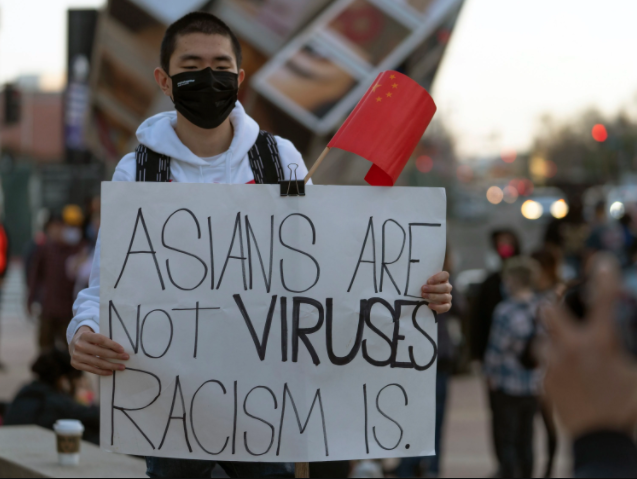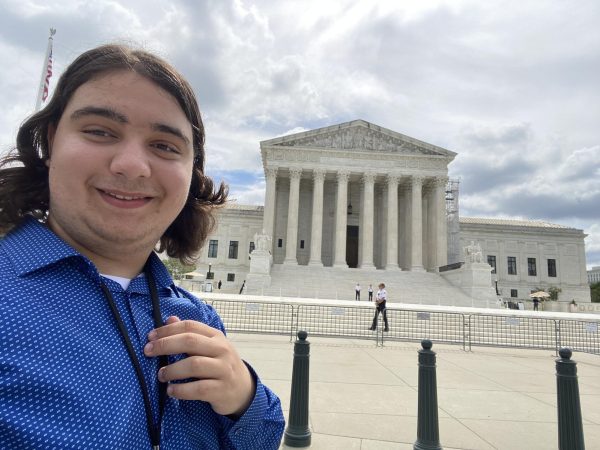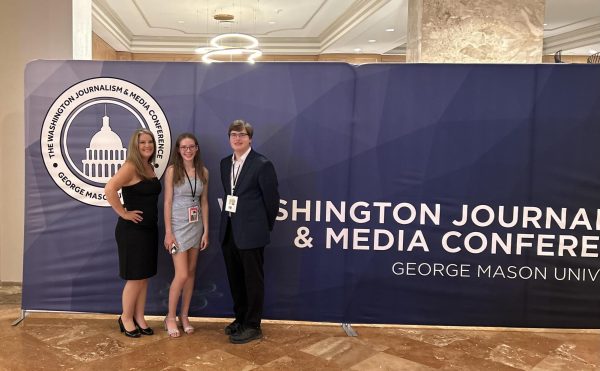Asian-American discrimination: a hidden pandemic?
Many Asian-Americans stand up for themselves at peaceful protests and gatherings in hopes to put an end to Asian hate.
This year, the Black Lives Matter movement and the unlawful deaths of several African American people, has also resulted in new understanding about additional racism against Asian-Americans.
Recently, a tragic event took place in three different spas in the Atlanta area. Twenty-one year old, Robert Long went on an alleged shooting spree on a Tuesday night in March, and killed eight people, six of which were women of Asian descent. The shooter claimed it was not an act of terrorism but more-so a man trying to “eliminate temptation.” There is lingering concern that this was just an excuse and that there is a serious Asian-hate issue starting to arise. However, the police stated that it was still too soon to tell if this could be classified as a hate crime or not.
A new study based on police department statistics has shown that Asian-American discrimination complaint cases are up nearly 150 from last year, according to an article from CBS News. The article continues to describe that while the reported number of Asian-American discrimination cases were rising, the overall crime rates took a small dip, which points out just how drastic these differences were.
COVID-19 has had an impact on this issue. People are fed-up with how long this pandemic has been going on, that they are lashing out and turning to Asians to blame, simply because of the fact that it came from China. Yet, something many of these angry Americans aren’t seeing, is that China didn’t simply create and spread a virus out of spite, because they have had to go through everything everyone else did as well as losing countless lives. A case could be made to place some of the blame on President Trump.
In March 2020, Trump sent out a tweet that referred to COVID-19 as the “Chinese virus” and “Kung flu.” His tweet kicked off more than 700,000 tweets that contained more than 1.2 million anti-Asian hashtags. Since his “Chinese virus” tweets started coming out, from then until February 2021, (one year), 3,795 anti-Asian hate incidents have been reported in America. That number is drastically higher than the typical number of crimes and harassment reported against Asians in the span of a year. The Whitehouse Press Secretary, Jen Psaki, even claimed that the way President Trump used racial slurs to describe the virus aided in fostering a hostile environment for Asian-Americans and that hate crimes against them have rapidly increased. While the blame can’t be placed entirely on Trump for how Americans act and their individual beliefs, he still played a substantial role in stirring up the antagonism between white Americans and people of Asian descent.

In President Trump’s defense, when reporters asked him why he called it the “China Virus,” he stated, “Because it comes from China, that’s why.” And to go into further detail, he explained how there have been other instances where other diseases used similar names. “Spanish Flu. West Nile Virus. Zika. Ebola. All named for places. Before the media’s fake outrage, even CNN called it ‘Chinese Coronavirus.’ Those trying to divide us must stop rooting for America to fail and give Americans real info they need to get through the crisis,” stated President Trump, according to CNBC News. While there may have been viable reasons for referring to COVID-19 as a “Chinese Virus,” there are absolutely no excuses for some other derogatory terms he has used like “Kung Flu.”
In hopes to make a change, the Senate has just passed a bill this month, April 2021, against anti-Asian hate crimes. It is called the COVID-19 Hate Crimes Act and passed with a 92-to-6 vote. This happened on the same day that President Biden named a liaison to the Asian-American Pacific Islander community from his administration.
“At a time when the A.A.P.I. community is under siege, this bill is an important signal that Congress is taking anti-Asian racism and hatred seriously,” stated Ms. Hirono, the first Asian-American woman elected to the Senate.
The Republican response lacked enthusiasm, but did not oppose the bill. State-run hate crime hotlines will be established and grant money will be provided to law enforcement agencies that hold training for their officers to help them identify hate crimes with bi-partisan support.
With attention sharply on the increase in Asian racism, the Biden administration must continue to take action to ensure this issue doesn’t accelerate into an even more widespread problem. As they begin to put policies in place and attempt to resolve this dire situation, there’s hope that these hate crimes and underlying attitudes that cause them can be mitigated.

Jessica Ahart is a senior at BASH that has written for The Cub and taken journalism for the past four years. She also previously wrote for the West Press...






















